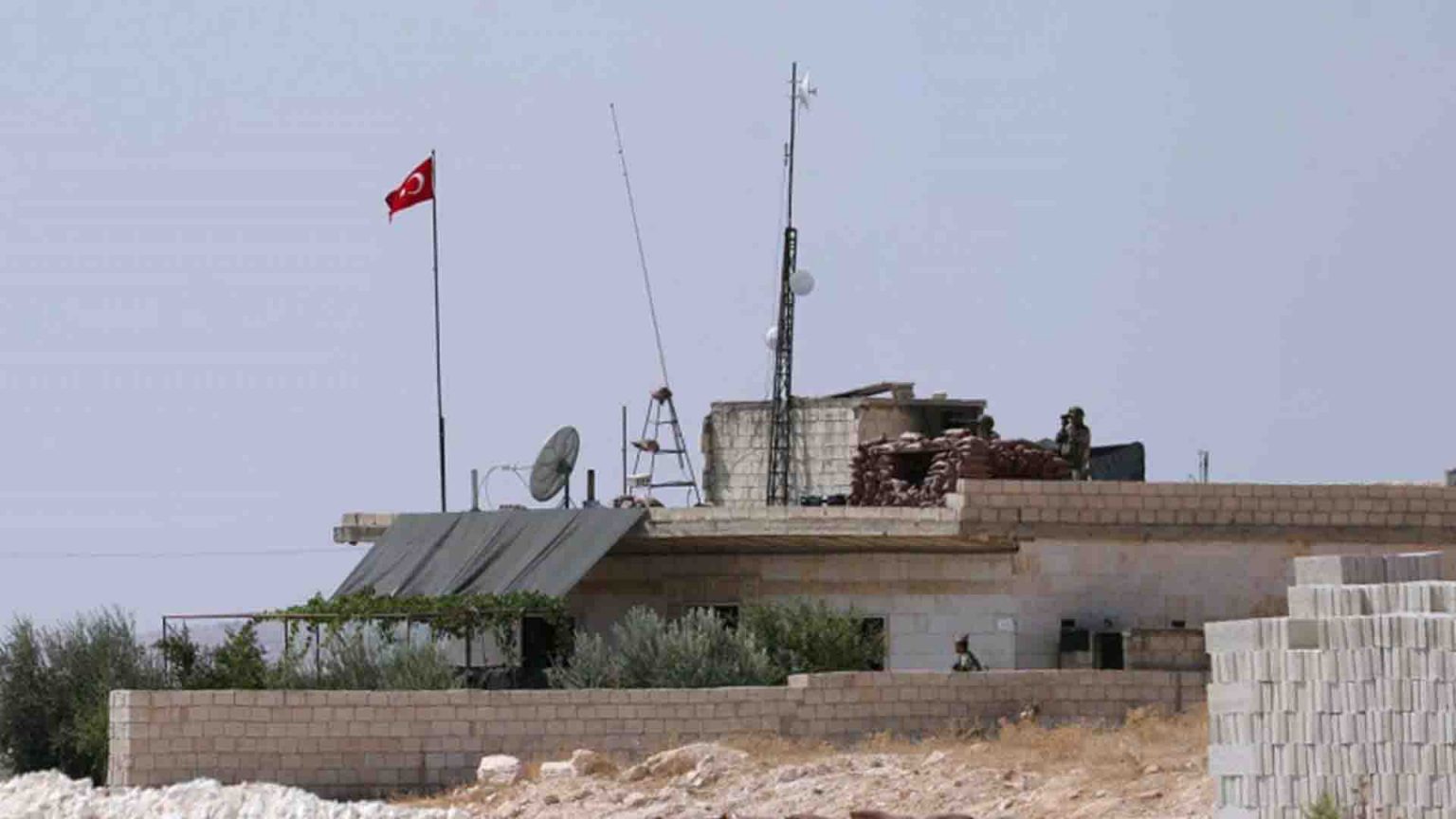HAMA, Syria (North Press) – The Turkish withdrawal from Morek observatory point in the northern countryside of Hama is an outcome of Russian-Iranian-Turkish understanding sponsored by Turkey, according to Syrian politicians.
While Syrian opponents believed that it was the outcome of a military strategic plan in order to save the lives of its soldiers in case new developments took place.
Trade-off areas
Mustafa Qal’aji, Secretary General of the Syrian Reform and Renaissance Party, and member of the Geneva Conference, said “The presence of Turkish points behind the Syrian government forces is no longer justified.”
“It is a trade-off on withdrawal in order to empower its presence in other areas,” he told North Press.
“Turkey always seeks to achieve its interests at the expense of everyone, and this can be noticed through the false de-escalation agreements,” Qal’aji stated.
“The fake understandings created the current situation. The withdrawal from parts of Aleppo, the occupation of Afrin, and the change of its ownership, took place with the approval of the Astana trio and with American sponsorship,” he added.
“The Turkish withdrawal from Morek point will not pass for free, despite its attempt to delay the implementation of the agreements.”
On October 20, Turkey evacuated its observatory point in Morek and stationed its forces in Zawiya Mount.
Fake lines
He believed that Turkey let down its backed opposition groups and was trying to draw new borders with Syria to be safe,” while it provoked everyone for the sake of its interests.”
Earlier this year, the Turkish president threatened the Syrian government, to force government forces to return beyond the observatory points, before the end of February.
“Turkish forces in the liberated areas are an impenetrable obstacle against the ambition of the regime and the Iranian militias that want the military solution,” Colonel Ahmad Hamada, an opposition military analyst, said.
“The other besieged points will be evacuated like Morek unless new agreements signed,” Hamada added.
This was justified by a political movement regarding Idlib, after the visit of the Russian envoy to Tehran and the recent visit of the Turkish Foreign Minister to Moscow.
“There are no trade-offs and Turkey supports keeping people at their houses and returning IDPs to their areas,” he added.
Redeploying
The withdrawal process was to evacuate the non-combat points and redeploy in other areas “after being not able to return to the boundaries of the Sochi Agreement,” he added.
“Keeping these points is a weakness, and perhaps they become a target for the regime forces that started to tightened them, but redeploying in the neighboring areas is considered a military necessity”, according to Hamada.
Earlier, the Syrian government forces shelled the Turkish points, especially Morek and Sher Maghar in the countryside of Hama, while Turkey announced on February 28 the death of 33 Turkish soldier in Idlib.
Maher Merhej, Secretary General of the Syrian National Youth Party, expected that upcoming new Turkish withdrawals from other observatory points will take place.
Turkey does not mind the geography of Idlib, Latakia, and Hama, rather the border line that protects its interests, Merhej noted.
“Turkey may deploy in the countryside of Raqqa and the bordering areas of Hasakah, because it realized that there is no future for the armed organizations in Idlib,” he added.
In October, Turkish forces and its backed armed opposition groups targeted the town of Ain Issa and its countryside and they also tried to infiltrate and penetrate the fortifications, but they failed.
The Turkish forces that withdrew from Morek headed towards Zawiya Mount where they empowered their points there.
Tactical withdrawal
“The Turkish withdrawal came after it felt that danger surrounded its soldiers by a popular resistance that may be more dangerous than the Syrian army,” he said.
Extortion card
Turkey uses armed opposition members as a card in its game to fulfill its political ambitions whether inside or outside Syria, according to Merhej.
“What is the relation of Armenia and Libya with the Syrian issue? Why it does not send them to fight in Israel? If it is interested in the Arab and Syrian issues,” he wondered.
“The Turkish withdrawal from Morek has nothing to do with the east of Euphrates,” Abdulsalam Qasem, Deputy Co-chair of Morek Dissolved Council, said.
“It is part of a military strategic plan that aims to save the lives of its soldiers against potential future developments,” he told North Press.
Qasem believes that the besieged Turkish observatory points in the Syrian government-held areas will remain.

